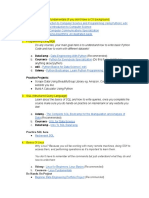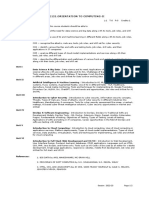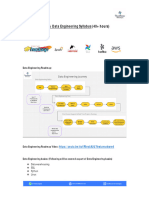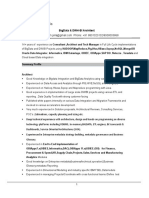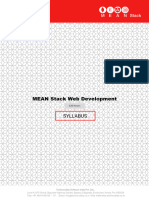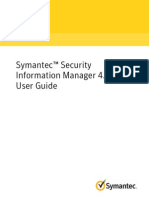0% found this document useful (0 votes)
20 views4 pagesData and ML Roadmap
The document outlines key skills to learn across various technologies including Linux, Git, Python, SQL, DBT, Docker, Airbyte, Apache Airflow, AWS, Apache Spark, and Terraform. It provides a suggested learning plan spanning four months, focusing on foundational skills in the first month and progressing to more advanced topics in subsequent months. Each technology section details essential commands, concepts, and best practices for effective learning and application.
Uploaded by
Yekeen NasirCopyright
© © All Rights Reserved
We take content rights seriously. If you suspect this is your content, claim it here.
Available Formats
Download as PDF, TXT or read online on Scribd
0% found this document useful (0 votes)
20 views4 pagesData and ML Roadmap
The document outlines key skills to learn across various technologies including Linux, Git, Python, SQL, DBT, Docker, Airbyte, Apache Airflow, AWS, Apache Spark, and Terraform. It provides a suggested learning plan spanning four months, focusing on foundational skills in the first month and progressing to more advanced topics in subsequent months. Each technology section details essential commands, concepts, and best practices for effective learning and application.
Uploaded by
Yekeen NasirCopyright
© © All Rights Reserved
We take content rights seriously. If you suspect this is your content, claim it here.
Available Formats
Download as PDF, TXT or read online on Scribd
/ 4


















